Pure CBD will not show up on your drug testing results. However, taking a CBD product that contains THC could result in you failing a drug screening test.
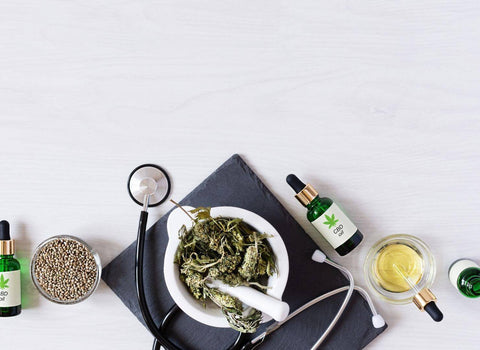
If you’re taking CBD and are unsure if it’ll cause a failed drug test, we’ll discuss the different types of CBD products on the market and how they affect drug testing.
For edibles with clean, carefully sourced ingredients and all-natural flavors, try our collection of vegan CBD gummies. Whether for sleep, relaxation, or an energy boost, we’ve got a customized blend for your needs.
What is CBD?
Cannabidiol (CBD) is the main non-psychoactive cannabinoid in the cannabis sativa, indica, and hemp plants. When CBD gets into the bloodstream, it interacts with the body's endocannabinoid system (ECS) to help keep things in balance.
The endocannabinoid system is a cell-signaling network of neurotransmitters that send messages to CB1 and CB2 receptors in the body.
This system is responsible for the functionality of:
- Mood and emotions
- Pain and inflammation
- Sleep
- Immune response
- Appetite
CBD’s interactions with this system can induce benefits ranging from pain relief to lowered anxiety to better sleep.
Speaking of a good night’s rest, our CBD gummies for sleep are perfect for relaxation and offer low doses of melatonin to help you fall asleep faster and stay asleep longer.
Some of the conditions CBD has been known to treat are:
- Epilepsy
- Alzheimer’s
- Insomnia
- Multiple sclerosis
- Glaucoma
- Panic disorders
- ADHD
Researchers also want to know more about how CBD could help people who are addicted to opioids, possibly by making their cravings go away. Not only is CBD non-psychoactive and well-tolerated, but it is not known to have any addictive properties as narcotics do.
Types of CBD Products
CBD products are continuing to increase in popularity, especially since the COVID-19 pandemic.
Some of the most common ways to consume CBD are:
- CBD edibles and gummies
- CBD oils and tinctures
- CBD vape pens
- CBD capsules
No matter your consumption method of choice, cannabis products are sold in three ways:
- CBD isolate
- Broad-spectrum CBD
- Full-spectrum CBD
CBD isolate products are pure CBD, meaning they contain no other cannabis compounds like cannabinoids, terpenes, or flavonoids. A broad-spectrum CBD product will contain many plant compounds like CBD, terpenes, and flavonoids but will not contain trace amounts of THC.
Our Anytime Broad Spectrum CBD gummies have 10 mg of hemp-derived CBD. These citrusy edibles can be taken during the day without worrying that you might feel drowsy or unproductive.
The difference between a full-spectrum CBD product vs. a broad-spectrum product is the presence of THC. Full-spectrum CBD products contain levels of THC and other cannabis compounds. Depending on how much THC the product contains, using full-spectrum CBD could cause mind-altering effects.
Our customers love our full-spectrum edibles because they offer microdoses of THC made from hybrid hemp strains that are federally legal across the US.
Dosing CBD
Dosing CBD is not the same for every person. The way your body reacts to CBD depends on a variety of factors. Some things that should be taken into account when deciding how to dose CBD are:
- Your current health and body weight
- Why you’re taking CBD
- The amount of CBD in the product
It’s best to start with low doses in the beginning. A low dose could be anywhere from 5-20 mg of CBD. Studies show that up to 1,500 mg of CBD per day is well tolerated by users.
For people who experience seizures, the Food and Drug Administration approved a medication called Epidiolex, administered at 2.5–5 mg of CBD per dose. However, patients with cancer-related pain may need up to 1,000 mg per day for relief. According to research, up to 600 mg a day worked well for people with anxiety. (Read more about how much CBD to take for stress and anxiety to help find the best dosage for you.)
Labeling accuracy of cannabidiol is key to ensuring you’re dosing properly. CBD companies should offer a label that shares the ingredients, cannabis concentrations, and recommended serving size.
All of our products, like nama’s Delta 8 THC gummies, include all relevant info on their labels, including the spectrum of the product, what cannabis compounds are included, and how much of each compound is in a single dose.
The Difference Between CBD and THC
CBD and THC are the two most well-known cannabinoids in cannabis plants. On the surface, the biggest difference between THC and CBD is their psychoactivity (or lack thereof). Beyond psychoactivity, they interact with the body differently.
Tetrahydrocannabinol (THC) is the main psychoactive cannabinoid in cannabis, known for the high feelings users experience. The most researched types of THC are Delta 8 and Delta 9.
Similar to CBD, low-dose THC offers a variety of health benefits, including:
- Pain and inflammation relief
- Improved sleep hygiene
- Increased relaxation and focus
When THC enters the bloodstream, it acts as an agonist, binding directly to the receptors in the endocannabinoid system.
Research suggests CBD and THC work best when taken together. CBD is known to downregulate THC, counteracting some of its psychoactive effects. This makes the cannabinoid more tolerable for certain users.
This entourage effect theory focuses on how cannabinoids and other cannabis compounds enhance each other’s benefits. The synergy between these compounds could be the sweet spot for unlocking the best of what cannabis can offer.
Taking CBD with low amounts of THC allows users to get the benefits of both compounds at tolerable doses. As the facts about microdosing THC continue to unfold, it’s clear that a little goes a long way.
CBD and THC for Pain
CBD is a natural anti-inflammatory. For people with chronic pain disorders, microdosing edibles for inflammation is a great choice. According to medical experts, CBD increases the bioavailability of analgesics in the body, especially for neuropathic pain and inflammation. A recent review suggests that CBD also has anti-oxidative properties. Oxidative stress in the body causes cell tissue and DNA damage, often resulting in inflammation.
In a recent study, researchers compared the effects of THC and codeine to measure their effects. The study concluded that just 10 mg of THC offered the same amount of pain relief as 60 mg of codeine. Patients noted feeling less anxious after taking THC than the narcotic. THC also alters one’s perception of pain, achieving relief without focusing on the ailment.
If you’re interested in microdosing THC for pain, you’ve got to try our Euphoria THC Sour gummies. These full-spectrum strawberry-flavored edibles have 10 mg of 100% American hemp-derived cannabis that has been third-party lab tested for clean ingredients and quality assurance.
CBD and THC for Anxiety
A recent study by Forbes Health reported that, out of 2,000 people, 51% reported using CBD for anxiety. Medical reports sugest that CBD plays an anxiolytic role in the body, aiding in the reduction of anxiety.
THC is known to decrease anxiety when taken in low doses but could exacerbate symptoms when taking too much. That’s why microdosing edibles for anxiety is such a great option, especially for those who experience panic attacks. People with ADHD microdose edibles because of the way THC calms the restlessness and irritability associated with the disorder.
For an uplifting air of chill vibes and relaxation, try our Bliss gummies. These vegan, gluten-free, non-GMO edibles are made with all-natural honeydew flavors and a 1 to 1 ratio of THC and CBD.
CBD and THC for Sleep
At the right dose, both CBD and THC are known to improve sleep issues. The Sleep Foundation reported that almost half of the adults in the US struggle with insomnia. Cannabinoids affect the CB1 receptor, which is involved in our sleep-wake cycle and helps us fall asleep.
Research shows taking low doses of THC in the presence of CBD can cut down sleep onset latency and increase sleep time. Taking full-spectrum CBD oils with THC for sleep could be as low as 1-2 mg.
Our Sleep Plus gummies have just 2 mg of THC, 25 mg of CBD, and 3 mg of melatonin, with hints of lavender and blackberry flavor. Note that we do not recommend taking melatonin twice in one night, so stick with just one gummy.
CBD and THC for Neuroprotection
A 2018 review concluded that CBD and THC have neuroprotective and immunomodulatory effects, especially when taken together. These cannabinoids work with the endocannabinoid system to enhance the functionality of memory processing and learning throughout the nervous system. A recent study points to low doses of THC reversing brain aging. When THC stimulates the CB1 receptor, it helps reduce age-related inflammation and induces neurogenesis.
People with dementia microdose THC because of its positive effects when coupled with CBD. According to scientific reports, CBD could suppress the causal factors of Alzheimer’s and is enhanced in the presence of THC.
CBD and Drug Testing
Taking a CBD isolate product will not cause a failed drug test result. Drug screening is not generally done for CBD, as it is a non-psychoactive, highly tolerable cannabinoid. However, some CBD oils contain trace amounts of THC. If you’re taking a drug test for cannabis, it’s the THC levels they’re looking for, not the CBD content. You may see a positive drug test result if your screening detects THC. This applies to workplace drug tests, too.
Even if a full-spectrum CBD oil has low THC levels, you may not be in the clear. If you’re using CBD and taking a drug test for cannabis, be mindful of full-spectrum CBD oil extracts. They contain trace amounts, or more, of THC. Microdosing THC can still show up on a drug test depending on how long it stays in your system.
Broad-spectrum CBD oil and CBD isolate oils contain no traces of THC. Like our Relax gummies. This broad-spectrum product has 25 mg of hemp CBD and 100 mg of organic Ashwagandha. Known as Indian Ginseng, Ashwagandha is an herb that can improve immunity, reduce inflammation, increase energy, and calm the mind.
Product QUIZ
Need help deciding what product is best for you? Take our quiz, just three questions until your perfect match!
How Long Does CBD Stay in Your System?
How long CBD stays in your system depends on a variety of factors and is not the same for everyone. Some things that could determine how long CBD stays in your system are:
- How much and how often you consume cannabis
- Your weight and current diet
- The type of CBD product you’re using
- Pre-existing health conditions or medications
- Types of drug tests you’re taking
The same goes for THC. The cannabinoid binds to fat cells, creating metabolites in the body to help break down the cannabinoid. CBD drug tests will check your urine, saliva, blood, or hair for the THC metabolite levels present in your body. Delta 9 THC is the cannabinoid most commonly tested for because it is the most psychoactive.
Urine Test
Urine drug tests are the most commonly used form of testing for THC content in your system. 50 nanograms of THC per millimeter of urine is the cutoff amount for a negative drug test in the United States, though some workplace testing facilities may use a 20 ng/mL scale for urine testing. A 2006 review noted that those who don’t use cannabis often could pass urine drug screens in one to three days after using it. If you’re an everyday user, cannabis can be detectable in urine for 30 days or more.
Blood Test
Blood testing is an uncommon practice because it's much more invasive and the results take longer to conclude. However, cannabis and cannabis-derived products can stay in your system for up to 30 days if THC is present and you are a chronic user. If you smoke less than weekly, you should not be testing positive for THC after a week or so of the last use.
CBD Saliva Test
Drug screening from oral fluid is generally practiced for roadside testing. Chronic CBD users could receive a positive drug test from their saliva if they’ve used CBD that contains THC within the past 30 days. For those who are moderate to light users, it should leave the system in a week or less to avoid testing positive.
CBD Hair Test
Hair tests have been known to generate false positives for drug screening, so they’re not often used. Cannabis can also be found in your hair if you were exposed to it indirectly, which makes it less reliable for doctors to use. However, THC can stay in your hair follicles for up to 90 days if you’re a regular user.
Is CBD Legal?
After the 2018 Farm Bill created a legal distinction between hemp and marijuana, hemp-derived CBD oil and other hemp products became federally legal. However, some states have restrictions on this.
Read our guide to find out if Delta 9 is legal in your state.
Hemp refers to any cannabis plant that contains no more than 0.3% THC by dry weight. Marijuana contains more than 0.3% THC and is still considered a federally illegal, controlled substance.
All of our Delta 9 edibles are made in accordance with the 2018 Farm Bill. You can guarantee that our cannabidiol extracts sold online will offer you full transparency if they have low to microdoses of THC.
CBD Testing FAQ
How long does CBD stay in urine?
CBD can remain in urine for 30 days or more if you’re a daily consumer who uses it multiple times a day. If you are an occasional user, cannabis should be cleared from your system within a week.
Do urine tests check for CBD?
Urine tests do not check for CBD. CBD is a nonpyschoactive cannabinoid that is not known to cause impairment. Urine drug tests will check for THC levels that can be present in CBD products.
What’s in CBD oil that causes a positive drug test?
If you receive a positive test result and you use CBD, it’s because the product had trace amounts of THC in it. THC is the main psychoactive cannabinoid in cannabis and is what drug screeners will test for. Be sure to check the labels on your products to know whether they are broad-spectrum or CBD isolate. Full-spectrum products will contain THC.
Will CBD make me fail a workplace drug test?
Taking CBD isolate or broad-spectrum CBD will not cause a positive test, so long as they do not contain traces of THC. If the product you’re using contains THC, you may see a positive result.
Will taking CBD make me feel high?
CBD is the most well-known non-psychoactive cannabinoid found in the cannabis plant, and it will not get you high. Some CBD products contain microdoses of THC that offer a slight euphoria without making you feel impaired.
For an uplifting, relaxed experience, try our THC sour gummies. These low-dose THC edibles (10 mg) with sweet, all-natural strawberry flavors are blended from a terpene hemp extract made in the US that is compliant with federal law.
How long should I stop smoking before a drug test?
How long you should refrain from using cannabis before a drug test depends on how often you use it. Chronic users who smoke multiple times a day may want to wait 30 days or more before taking a drug screening. If you’re an occasional smoker (once a week or less), then it can be gone from your system in about a week and you shouldn’t test positive for THC.
Citations:
- Safety and side effects of cannabidiol, a Cannabis sativa constituent - PubMed. (2011, September 1). PubMed. https://doi.org/10.2174/157488611798280924
- Blessing, E. M., Steenkamp, M. M., Manzanares, J., & Marmar, C. R. (2015, September 4). Cannabidiol as a Potential Treatment for Anxiety Disorders. PubMed Central (PMC). https://doi.org/10.1007/s13311-015-0387-1
- Chen, A. (n.d.). Some of the Parts: Is Marijuana’s “Entourage Effect” Scientifically Valid? Scientific American. https://www.scientificamerican.com/article/some-of-the-parts-is-marijuana-rsquo-s-ldquo-entourage-effect-rdquo-scientifically-valid/
- Argueta, D. A., Ventura, C. M., Kiven, S., Sagi, V., & Gupta, K. (2020, April 30). A Balanced Approach for Cannabidiol Use in Chronic Pain. PubMed Central (PMC). https://doi.org/10.3389/fphar.2020.00561
- Atalay, S., Jarocka-Karpowicz, I., & Skrzydlewska, E. (2019, December 25). Antioxidative and Anti-Inflammatory Properties of Cannabidiol. PubMed Central (PMC). https://doi.org/10.3390/antiox9010021
- Mack, A., & Joy, J. (2000, January 1). MARIJUANA AND PAIN - Marijuana as Medicine? - NCBI Bookshelf. MARIJUANA AND PAIN - Marijuana as Medicine? - NCBI Bookshelf. https://www.ncbi.nlm.nih.gov/books/NBK224384/
- Survey: 64% Of U.S. Adults Think CBD Is Safer Than Alcohol, Despite Legality Concerns. (2022, April 21). Forbes Health. https://www.forbes.com/health/body/2022-cbd-survey/
- Blessing, E. M., Steenkamp, M. M., Manzanares, J., & Marmar, C. R. (2015, September 4). Cannabidiol as a Potential Treatment for Anxiety Disorders. PubMed Central (PMC). https://doi.org/10.1007/s13311-015-0387-1
- 100+ Sleep Statistics - Facts and Data About Sleep 2023 | Sleep Foundation. (2023, April 4). Sleep Foundation. https://www.sleepfoundation.org/how-sleep-works/sleep-facts-statistics
- Vaillancourt, R., Gallagher, S., Cameron, J. D., & Dhalla, R. (2022, April 15). Cannabis use in patients with insomnia and sleep disorders: Retrospective chart review. PubMed Central (PMC). https://doi.org/10.1177/17151635221089617
- Maroon, J., & Bost, J. (2018, April 26). Review of the neurological benefits of phytocannabinoids. PubMed Central (PMC). https://doi.org/10.4103/sni.sni_45_18
- Watson, K. K., Bryan, A. D., Thayer, R. E., Ellingson, J. M., Skrzynski, C. J., & Hutchison, K. E. (2022, February 10). Cannabis Use and Resting State Functional Connectivity in the Aging Brain. PubMed Central (PMC). https://doi.org/10.3389/fnagi.2022.804890
- Kim, S. H., Yang, J. W., Kim, K. H., Kim, J. U., & Yook, T. H. (2019, December 31). A Review on Studies of Marijuana for Alzheimer’s Disease – Focusing on CBD, THC. PubMed Central (PMC). https://doi.org/10.3831/KPI.2019.22.030
- Farm Bill. (n.d.). Farm Bill | USDA. https://www.usda.gov/farmbill
nama CBD FDA & Legal Disclaimer
This article is for informational purposes only, and does not constitute medical advice. Our products are not intended to diagnose, treat, cure, or prevent any disease. They are not a replacement for prescription medications and have not been evaluated by the Food and Drug Administration (FDA).
The information provided on this website does not, and is not intended to, constitute legal advice or any statements of the status of any laws. Any information, content, and materials available on this site are for general informational purposes only, and are not intended to be relied upon for any purpose.
Readers of this website should contact their attorney to obtain advice with respect to any particular legal matter including decisions on what products are, or are not, legal to sell, possess, or consume. No reader, user, or browser of this site should act or refrain from acting on the basis of information on this site without first seeking legal advice from their own counsel in the relevant jurisdiction.
Only your individual attorney can provide assurances that the information contained herein – and your interpretation of it – is applicable or accurate for your particular situation. Use of, and access to, this website or any of the links or resources contained within the site do not create an attorney-client relationship between the reader, user, or browser, and website authors, contributors, contributing law firms, or committee members and their respective employers.
More From the nama Family
Small batch edibles crafted for different times of the day and experiences.
More articles
About
Learn
Join us on this journey

© Copyright 2025 nama Products LLC. All Rights Reserved.
†These statements have not been evaluated by the Food and Drug Administration. These products are not intended to diagnose, treat, cure or prevent any disease. All information presented here is not meant as a substitute for or alternative to information from health care practitioners. Please consult your health care professional about potential interactions or other possible complications before using any product.
††The information provided on this website does not, and is not intended to, constitute legal advice or any statements of the status of any laws. Any information, content, and materials available on this site are for general entertainment purposes only, and are not intended to be relied upon for any purpose.
123 John Doe Street
Your Town, YT 12345
Store Hours
Sun: Closed
Mon-Fri: 9:00 - 17:00
Sat: 10:00 - 13:00
What to expect at pickup
Closed
Closing at 5pm
Closing at 5pm
Closing at 5pm
Closing at 5pm
Closing at 5pm
Closing at 1pm

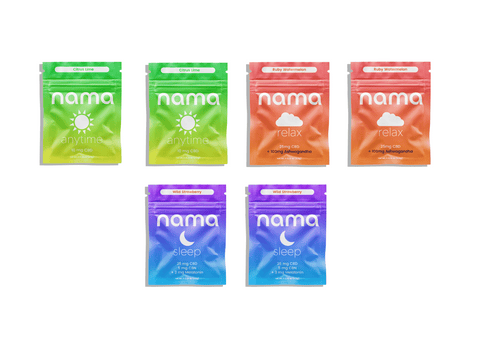
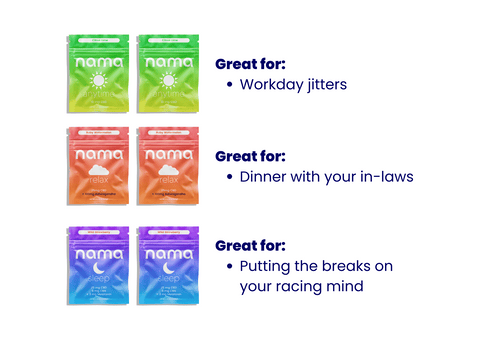
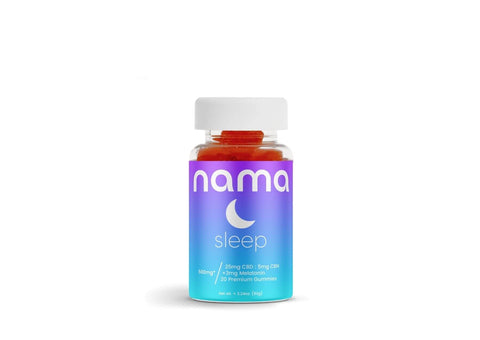
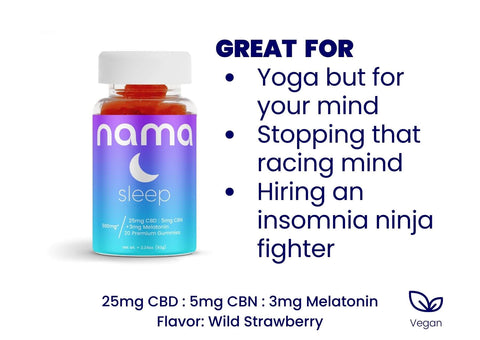
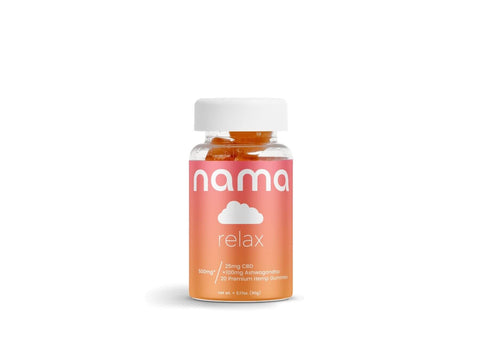
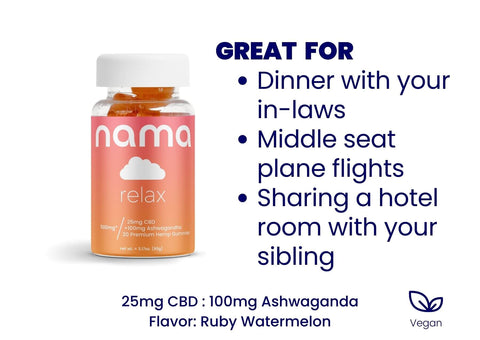
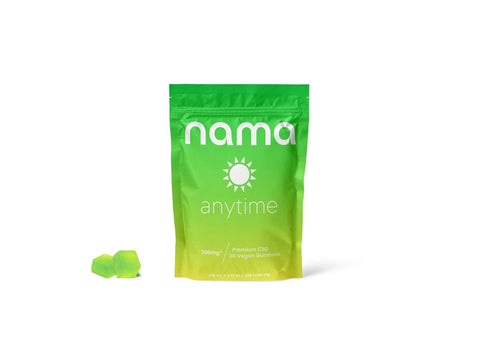
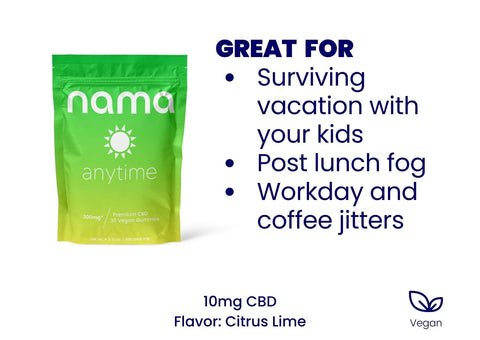
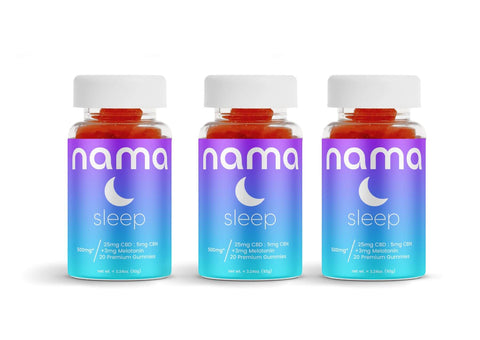
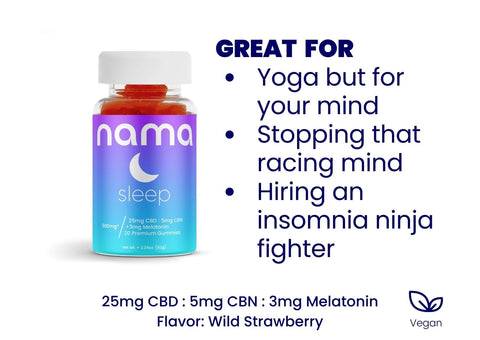
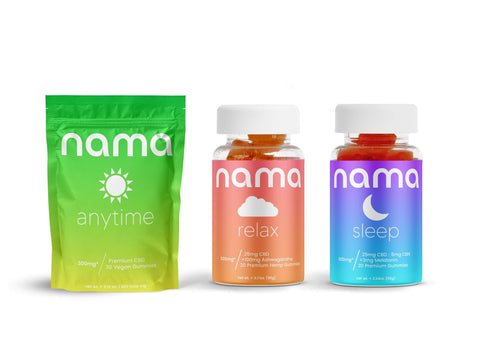
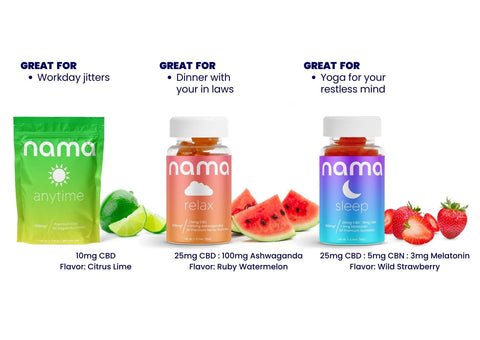
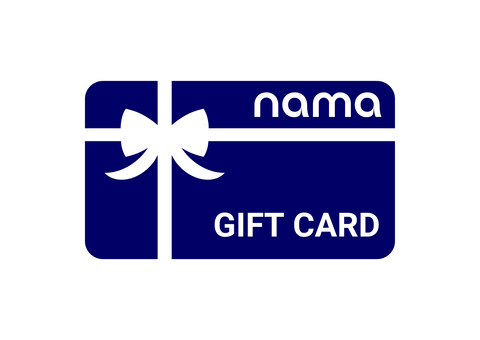







![Buzz Packs™ [THC and CBD Powder Drink Mix]](http://www.namacbd.com/cdn/shop/files/nama_buzz_packs_thc_drink_pack_white_background.png?v=1741884660&width=480)
![Buzz Packs™ [THC and CBD Powder Drink Mix]](http://www.namacbd.com/cdn/shop/files/Buzz_Packs_Label.png?v=1741884660&width=480)




![Buzz Drops™ [THC Drink Drops]](http://www.namacbd.com/cdn/shop/files/nama_thc_buzz_drops.png?v=1711412866&width=480)
![Buzz Drops™ [THC Drink Drops]](http://www.namacbd.com/cdn/shop/files/buzz-drop-wine-comparison.png?v=1736882023&width=480)


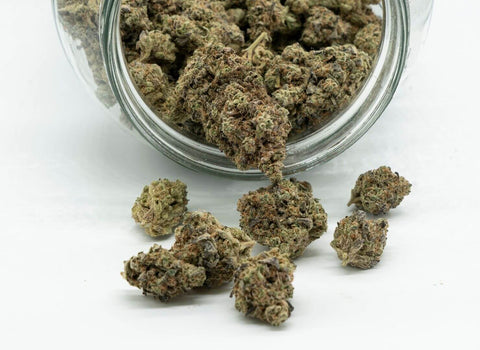
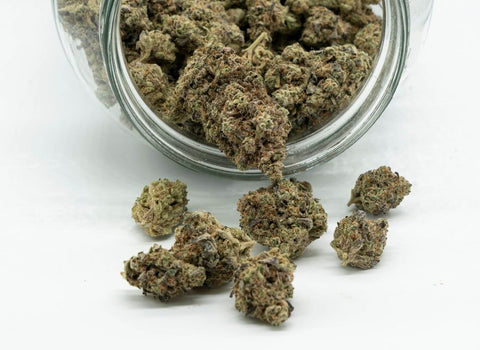


Comments (0)
There are no comments for this article. Be the first one to leave a message!